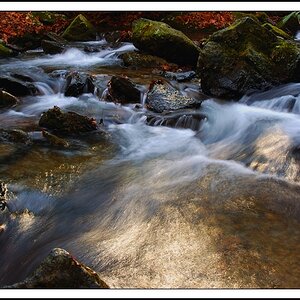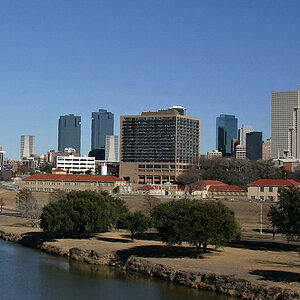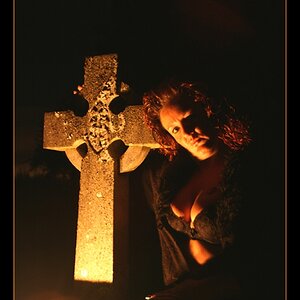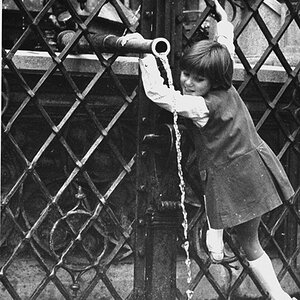ksmattfish
Now 100% DC - not as cool as I once was, but still
- Joined
- Aug 25, 2003
- Messages
- 7,019
- Reaction score
- 36
- Location
- Lawrence, KS
- Website
- www.henrypeach.com
- Can others edit my Photos
- Photos NOT OK to edit
When the wonder of the technology wears off the ignorant masses will go back to thinking that it's the same as it ever was. Once upon a time film was looked at as the upstart new technology that was so easy anyone could be a photographer.
What can you do about ignorance? I was asked if the colors in this photo were real.

me: What do you mean?
them: Are they created in Photoshop?
me: I had a polarizing filter on, but yes, I used Photoshop to process it (and admittedly did some tweaking).
them: Oh.
They came out of the conversation thinking that I had cheated somehow, and I came out of the conversation thinking they were ignorant of photographic process. At this point to I really want to educate them about color photography? I could point out that film and digital use layers of filtered BW (or filter patterns) to simulate color, and that there is no such thing as "real colors" when it comes to photography. But what's the point? What's important to her, and what she really asked me is:
Is this how the camera saw the scene? And the honest answer is no.
The question that is important to me is: Is this photo accurate to what what I saw and experienced visually when I stood there and made the exposure? And the answer is yes. Cameras don't see contrast like this between bright blue sky and clouds, but my eyes do. This photo is very accurate to reality as I experienced it standing there wearing polarized sunglasses. I did increase saturation, but I did it with the pol filter, just as I used to do with film, and not in Photoshop (not that I'm against it, I just like what the pol filter does better). The rocks and the lichen and the sky looked like this to my eyes. The camera came up with a drab, inferior Xerox copy of what was really there. It took processing to get around the limitations of the device.
I know how to do everything I did to the photo in PS in the traditional darkroom although it would have taken me much, much longer. Not counting the warm up time I'd need it would take me several days, if not a week or more, to get to a finished print. PS took me about 30 min. People often place extra value on tasks that require more time and effort. For me what's important has been narrowed down to the finished print: either it's good or it's not, and all I care about how much time I spent making it is that I hope I'm not wasting a bunch of time on bad photos.
"To say of a picture, as is often said in its praise, that it shows great and earnest labour, is to say that it is incomplete and unfit for view." -James McNeill Whistler
What can you do about ignorance? I was asked if the colors in this photo were real.

me: What do you mean?
them: Are they created in Photoshop?
me: I had a polarizing filter on, but yes, I used Photoshop to process it (and admittedly did some tweaking).
them: Oh.
They came out of the conversation thinking that I had cheated somehow, and I came out of the conversation thinking they were ignorant of photographic process. At this point to I really want to educate them about color photography? I could point out that film and digital use layers of filtered BW (or filter patterns) to simulate color, and that there is no such thing as "real colors" when it comes to photography. But what's the point? What's important to her, and what she really asked me is:
Is this how the camera saw the scene? And the honest answer is no.
The question that is important to me is: Is this photo accurate to what what I saw and experienced visually when I stood there and made the exposure? And the answer is yes. Cameras don't see contrast like this between bright blue sky and clouds, but my eyes do. This photo is very accurate to reality as I experienced it standing there wearing polarized sunglasses. I did increase saturation, but I did it with the pol filter, just as I used to do with film, and not in Photoshop (not that I'm against it, I just like what the pol filter does better). The rocks and the lichen and the sky looked like this to my eyes. The camera came up with a drab, inferior Xerox copy of what was really there. It took processing to get around the limitations of the device.
I know how to do everything I did to the photo in PS in the traditional darkroom although it would have taken me much, much longer. Not counting the warm up time I'd need it would take me several days, if not a week or more, to get to a finished print. PS took me about 30 min. People often place extra value on tasks that require more time and effort. For me what's important has been narrowed down to the finished print: either it's good or it's not, and all I care about how much time I spent making it is that I hope I'm not wasting a bunch of time on bad photos.
"To say of a picture, as is often said in its praise, that it shows great and earnest labour, is to say that it is incomplete and unfit for view." -James McNeill Whistler






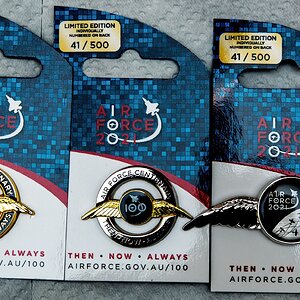


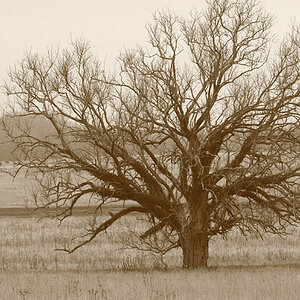
![[No title]](/data/xfmg/thumbnail/42/42482-3d0e794a92737ca7ecbc8125874457aa.jpg?1619740195)
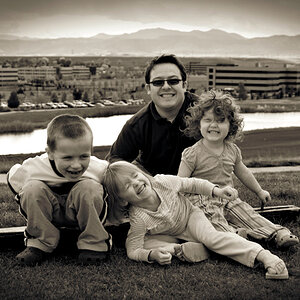
![[No title]](/data/xfmg/thumbnail/33/33875-e155733428c9a8d5f34bbc19e80e29a6.jpg?1619736181)
